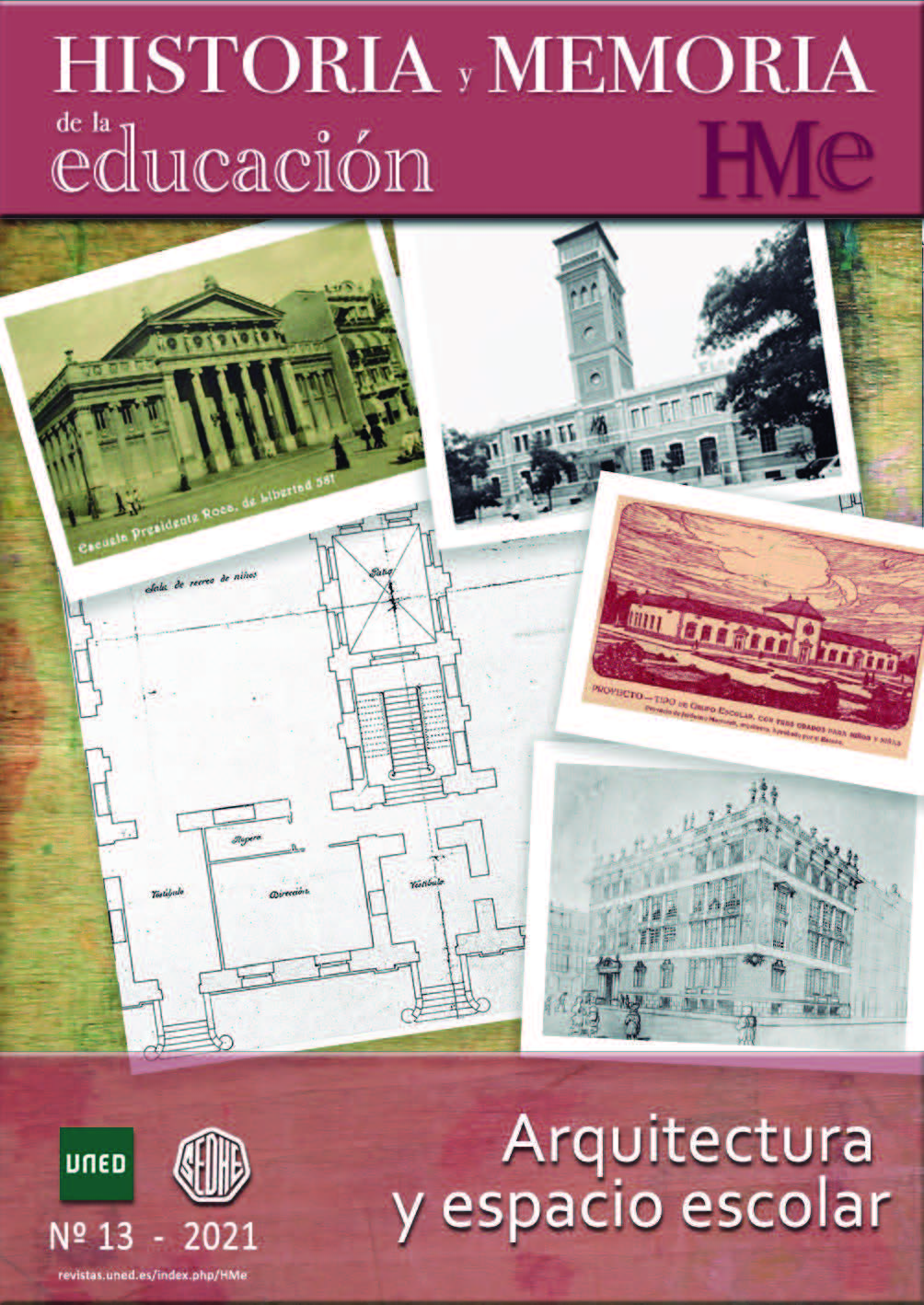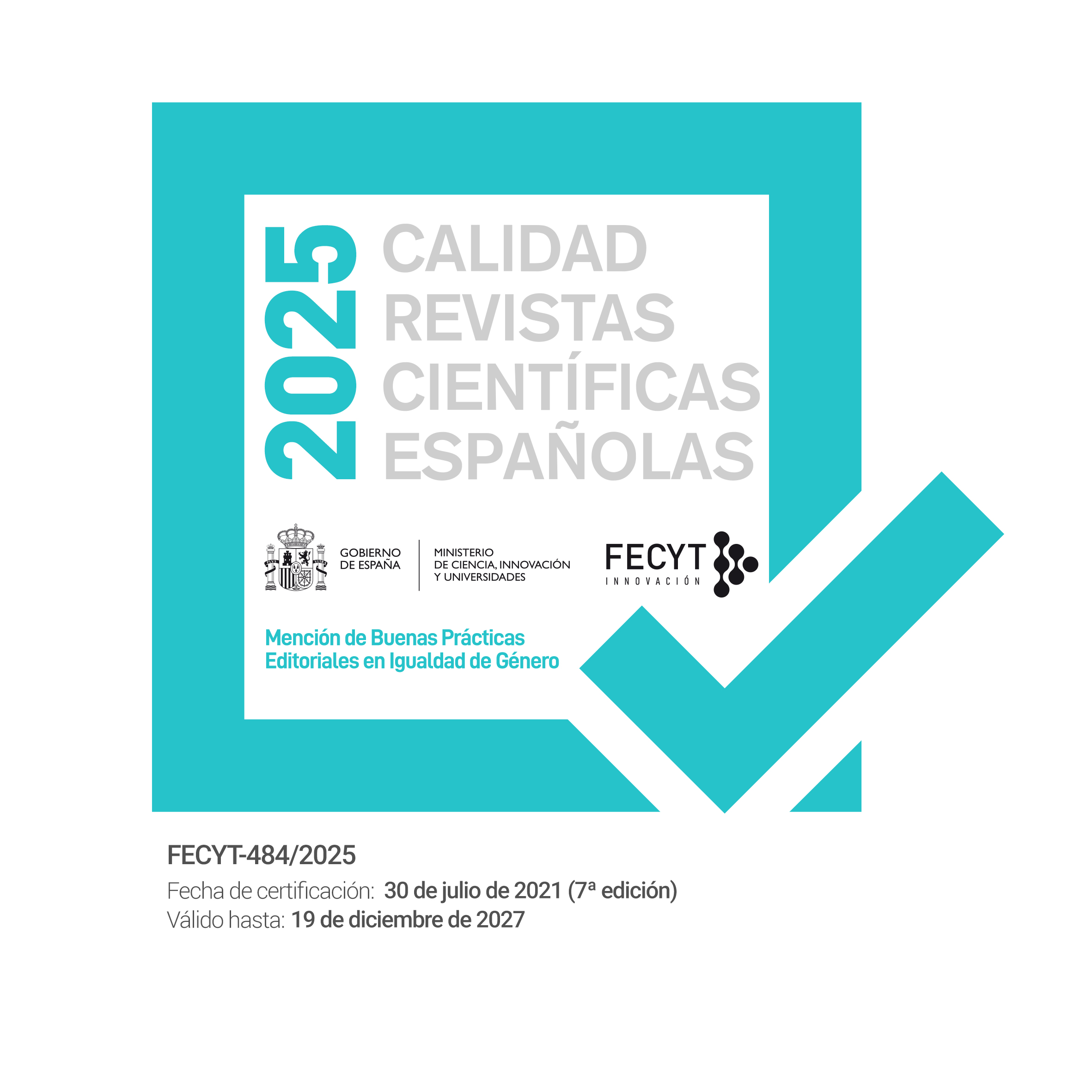“Open air school” – A “new” space for educational school reform and life reform in the interwar period in Czechoslovakia (Sudeten German and Czech examples)
DOI:
https://doi.org/10.5944/hme.13.2021.27181Keywords:
progressive education, school reform, life reform, Czechoslovakia, open air school, school architectureAbstract
The study analyses two examples of so-called open air schools in Czechoslovakia in the interwar period – a Czech and a Sudeten German example of “new education”. The article presents selected examples of school reform as a place of “new education” and analyses their architecture with regard to the educational concept, the problem of education of the “new man” within the framework of life reform and with regard to the architectural conception and arrangement of the space intended for learning. The text analyses both the “external” form of the school building and the “internal” architecture of the educational thinking of the main protagonists of both school reform examples – Eduard Štorch and Karl Metzner. The analysis of the examples of school reform is carried out in the socio-political context of Czechoslovakia in the interwar period and in the context of the efforts to reform the school architecture at the beginning of the 20th century and in the interwar period in Central Europe.
Downloads
References
Ash, Mitchell G. and Jan J. Surman. The nationalization of scientific knowledge in the Habsburg Empire, 1848–1918. Basingstoke: Palgrave Macmillan, 2012.
Buchholz, Kai. Die Lebensreform: Entwürfe zur Neugestaltung von Leben und Kunst um 1900. Darmstadt: Wissenschaftlicher Verlag, 2001.
Burke, Catherine, Peter Cunningham and Ian Grosvenor. “‘Putting education in its place’: space, place and materialities in the history of education”. History of Education 39, no. 6 (2010): 677-680.
Caruso, Marcelo. Biopolitik im Klassenzimmer: zur Ordnung der Führungspraktiken in den Bayerischen Volksschulen (1869–1918). Weinheim–Berlin–Basel: Beltz, 2003.
Depaepe. Marc and Bregt Henkens. The Challenge of the Visual in the History of Education. Ghent: CSHP Paedagogica Historica Supplementary Series 6, 2000.
Depaepe, Marc. Zum Wohl des Kindes? : Pädologie, pädagogische Psychologie und experimentelle Pädagogik in Europa und den USA, 1890–1940. Weinheim: Studienverlag, 1993.
Châtelet, Anne-Marie and Andrew Saint. L’école De Plein Air: une expérience pédagogique et architecturale dans l’Europe du XXe siècle = Open Air Schools: An Educational and Architectural Venture in Twentieth-Century Europe. Paris: Éd. Recherches, 2003.
Imhof, Michael. “Stereotypen und Diskursanalyse”. In Stereotyp, Identität und Geschichte. Die Funktion von Stereotypen in gesellschaftlichen Diskursen, edited by Hans Henning Hahn, 57-72. Frankfurt am Main: Peter Lang Verlag, 2002.
Hahn, Hans Henning. “Nationale Stereotypen”. In Stereotyp, Identität und Geschichte. Die Funktion von Stereotypen in gesellschaftlichen Diskursen, edited by Hans Henning Hahn, 17-56. Frankfurt am Main: Peter Lang Verlag, 2002.
Haslinger, Peter. Nation und Territorium im tschechischen politischen Diskurs: 1880–1938. München: Oldenbourg, 2010.
Judson, Pieter M. Guardians of the Nation: Activists on the Language Frontiers of Imperial Austria. Cambridge: Harvard University Press, 2006.
Judson, Pieter M. and Marscha M. Rozenblit. Constructing Nationalities in East Central Europe. New York: Berghahn Books, 2005.
Kasper, Tomáš. “Eduard Štorch’s New School as an Example of a School Reform Experiment in Interwar Czechoslovakia”. In Hidden Stories – the Life Reform Movements and Art, edited by Beatrix Vincze, Katalin Kempf and András Németh, 159-175. Berlin: Peter Lang, 2020.
Kasper, Tomáš. “The Sudetendeutsche Jugendgemeinschaft: the ideological and organisational platform of the Sudeten German youth movement and its means to create the Sudetendeutsche Volksgemeinschaft”. Paedagogica Historica (2019), in print
Kasper, Tomáš and Dana Kasperová. “Development and Focus of Czech Pädagogik in the Late 19th and Early 20th Centuries”. In Education and “Pädagogik”– Philosophical and Historical Reflections (Central, Southern and South-Eastern Europe), edited by Blanka Kudláčová and Andrej Rajský, 194-209. Berlin: Peter Lang, 2019.
Kasper, Tomáš and Dana Kasperová. “Exactness and Czech Pedagogy at the Break of the 19th and 20th Century”. History of Education and Children’s Literature 12, no. 2 (2017): 343–358.
Kasper, Tomáš. “Die deutsche Jugendbewegung in der Tschechoslowakei 1918–1933”. In Jugend in der Tschechoslowakei. Konzepte und Lebenswelten 1918–1989, edited by Christianne Brenner, Karl Braun and Tomáš Kasper, 25-59. Göttingen: Vandenhoeck & Ruprecht 2015.
Kasper, Tomáš and Dana Kasperová. “National, state and civic education in the Czech Lands of Austro-Hungarian Empire in Czechoslovakia after 1918”. History of Education and Children’s Literature 10, no. 1 (2015): 251–278.
Kerbs, Diethart and Jürgen Reulecke. Handbuch der deutschen Reformbewegungen 1880–1933. Wuppertal: Hammer Verlag, 1998.
Křen, Jan. Die Konfliktgemeinschaft. München: Oldenbourgh, 1996.
Lawn, Martin and Ian Grosvenor. “Imagining a Project: Networks, Discourses and Spaces – Towards a New Archaeology of Urban Education”. Paedagogica Historica 35, no. 2 (1999): 380-393.
Mayer, Christine. “The experimental and community schools in Hamburg (1919–1933): an introduction”. Paedagogica Historica 50, no. 5 (2014): 561–570.
Mayer, Christine. “Circulation and internationalisation of pedagogical concepts and practices in the discourse of education: The Hamburg school reform experiment (1919–1933)”. Paedagogica Historica 50, no. 5 (2014): 580–598.
Oelkers, Jürgen. Reformpädagogik: Entstehungsgeschichten einer internationalen Bewegung. Zug: Klett und Balmer, 2010.
Puschner, Uwe and Ulrich G. Großmann. Völkisch und national. Darmstadt: Wissenschaftliche Buchgesellschaft, 2009.
Richardson, Theresa. “The Home as Educational Space: Bayonne Housing and the Architecture of Working Class Childhood, 1917–1940”. Paedagogica Historica 36, no. 1 (2000): 299–337.
Skiera, Ehrenhard. Reformpädagogik in Geschichte und Gegenwart: eine kritische Einführung. München: Oldenbourg, 2010.
Stambolis, Barbara. Der Mythos der Jugend. Ein Aspekt der politischen Kultur im 20. Jahrhundert. Schwalbach: Wochenschau Verlag, 2003.
Šimek, Jan. Historie školních budov [The History of School Buildings]. Praha: NPMK, 2016.
Downloads
Published
How to Cite
Issue
Section
License
Authors who publish in Historia y Memoria de la Educación agree to the following terms:
- Authors retain copyright and grant the journal right of first publication with the work simultaneously licensed under a Creative Commons Attribution-NonCommercial 4.0 International that allows others to share the work with an acknowledgement of the work's authorship and initial publication in this journal.
- Authors are able to enter into separate, additional contractual arrangements for the non-exclusive distribution of the journal's published version of the work (e.g., post it to an institutional repository or publish it in a book), with an acknowledgement of its initial publication in this journal.
- Authors are permitted and encouraged to post their work online (e.g., in institutional repositories or on their website) prior to and during the submission process, as it can lead to productive exchanges, as well as earlier and greater citation of published work (See The Effect of Open Access).












